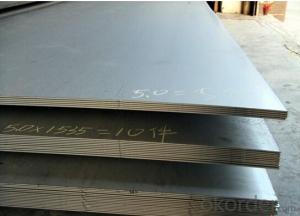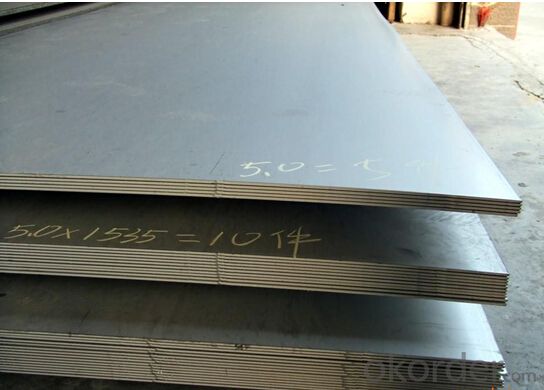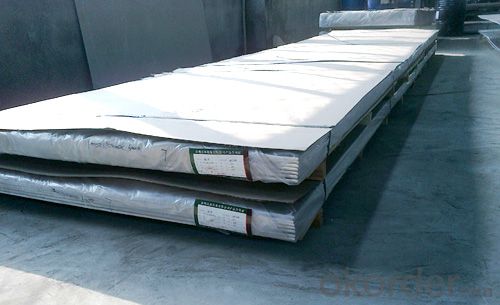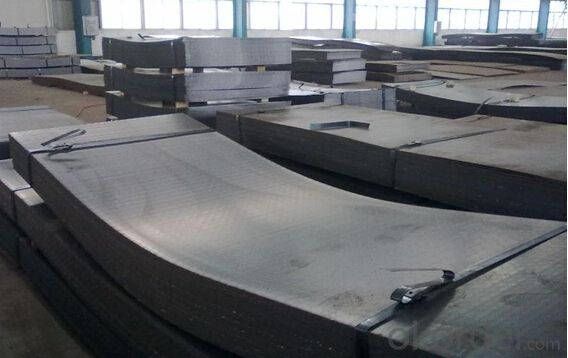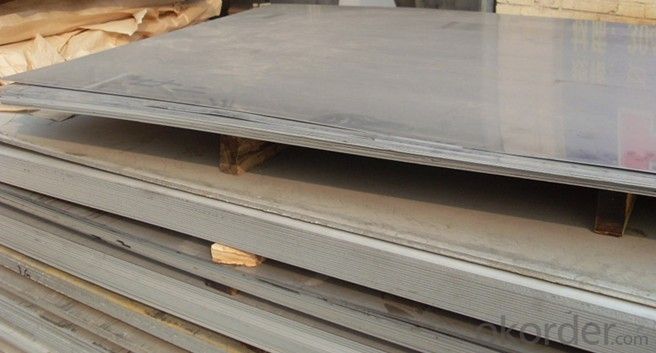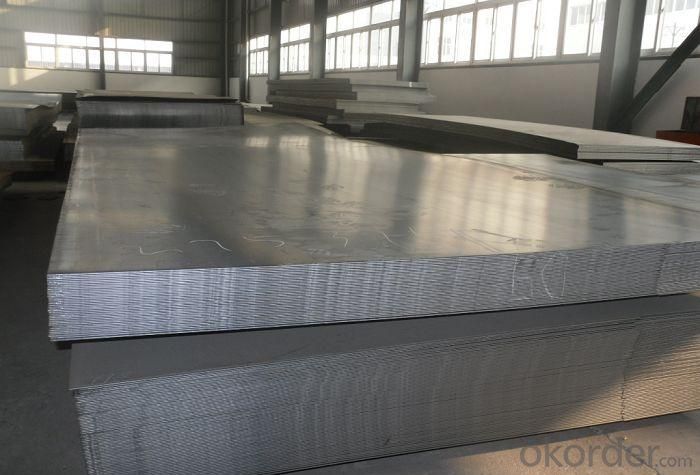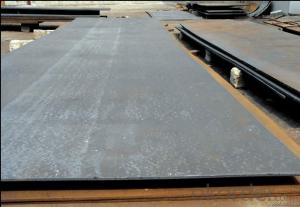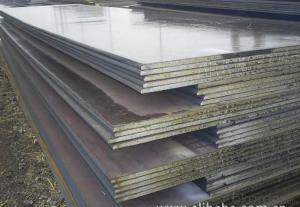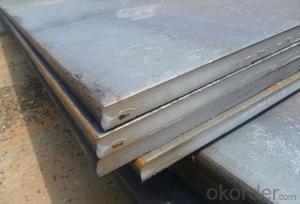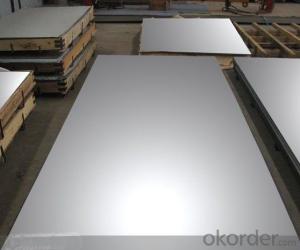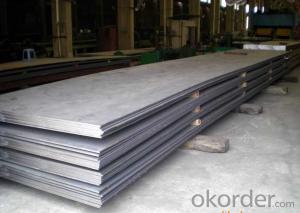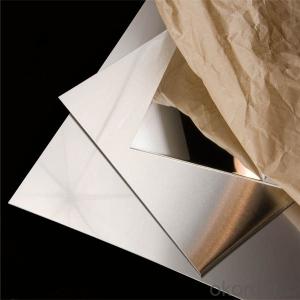SA283 GR.C Mild Steel Sheet/Mild Steel Plate
- Loading Port:
- Tianjin
- Payment Terms:
- TT OR LC
- Min Order Qty:
- 3 m.t.
- Supply Capability:
- 100000 m.t./month
OKorder Service Pledge
OKorder Financial Service
You Might Also Like
Specification
SA283 GR.C Mild Steel Sheet/Mild Steel Plate
Detailed Information of SA283 GR.C Mild Steel Sheet/Mild Steel Plate
| C | Si | P | S | yield Strength MAp | Tensile strength MAp | Elongation % | ||
| A36 | 0.24 | 0.4 | 0.045 | 0.03 | 250 | 400-520 | 26 | |
| C | Si | Mn | P | S | Cu | |||
| A283 | ≤0.27 | 0.15-0.4 | ≤0.9 | ≤0.035 | ≤0.04 | ≥0.2 | ||
| Thickness: | 6mm, 8mm, 12mm, 16mm, 20mm, 25mm, 30mm, 50mm, 80mm, 100mm, 150mm, 200mm | |||||||
| Width: | 1500mm, 1800mm, 2000mm, 2200mm, 2500mm | |||||||
| Length: | 6000mm, 8000m, can cut to width and length | |||||||
| Packing Details; | according to customer‘s require or export’s standard | |||||||
| Delivery time; | 7 days for stock sizes, 20-25 days for new production sizes | |||||||
| Port: | Tianjin China | |||||||
Related Products Overviews of SA283 GR.C Mild Steel Sheet/Mild Steel Plate
Product Name | Typical Grades | Diameter(mm) | Standard Adopted |
Carbon Steel | 20 (1020/S20C/C22) |
Ø16-Ø300 |
GB/SAE/ JIS/DIN |
40 (1040/S40C/C40) | |||
45 (1045/S45C/C45) | |||
Bearing Steel | GCr9 (51100/SUJ1) |
Ø12-Ø250 | |
GCr15 (52100/SUJ2/100Gr6) | |||
GCr9SiMn (A485-Gr.1/SUJ3) | |||
Cr-Mo Steel | 20Cr (5120/SCr420H/20Cr4) |
Ø12-Ø250 | |
40Cr (5140/SCr440/41Cr4) | |||
42CrMo(4140/SCM440/42CrMo4) | |||
Gear Steel | 20CrNiMo |
Ø16-Ø600 | |
20CrMn(5115/SMnC420/20MnCr5) | |||
20CrNiMo(8620/SNCM220/20CrMiMo2) |
Related Products Application of SA283 GR.C Mild Steel Sheet/Mild Steel Plate
Carbon Steel | l Mold bottom l Plastic mold l Construction machinery parts l Automobile parts l Security grills l Screens l Construction |
Bearing Steel | l Aerospace l Navigation l Nuclear energy l Chemical industry l Electronic information l Petrochemical l Instrument and meter l Transportation |
Cr-Mo Steel | l Mechanism & Fasteners gear l Stressed components for vehicles l Engines and machines l Parts of larger cross-section |
Gear Steel | l All kinds of gears l Statically and dynamically stressed component for vehicles l Engines and machine l Larger cross-section parts l Crankshafts |
Company Introduction of SA283 GR.C Mild Steel Sheet/Mild Steel Plate
CNBM International Corporation is the most import and export platform of CNBM group(China National Building Material Group Corporation) ,which is a state-owned enterprise, ranked in 270th of Fortune Global 500 in 2015.
With its advantages, CNBM International are mainly concentrate on Cement, Glass, Iron and Steel, Ceramics industries and devotes herself for supplying high quality series of refractories as well as technical consultancies and logistics solution.
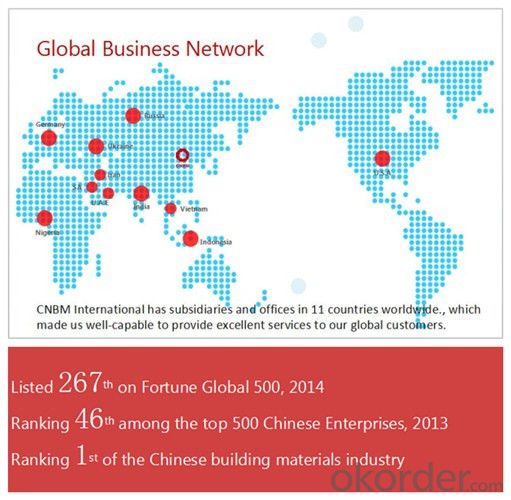
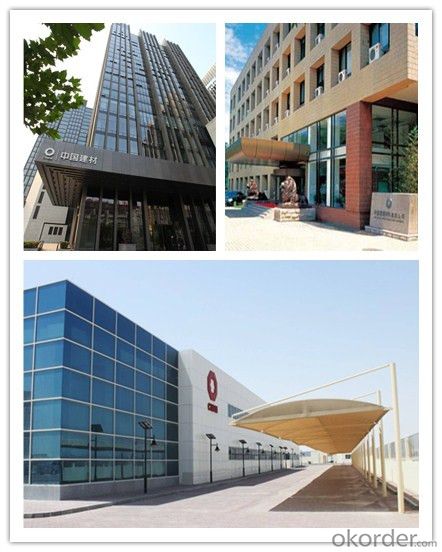
After-sale service | l CNBM provides the services and support you need for every step of our cooperation. We’re the business partners you can trust; you can relax and get on with doing business. l For any problem, please kindly contact us at any your convenient time, we’ll reply you in our first priority within 24 hours
|
Advantages
| l Industry experience over 20 years. l Shipment of goods -More than 70 countries worldwide. l The most convenient transport and prompt delivery. l Competitive price with best service. l High technical production line with top quality products. l High reputation based on best quality products.
|
Packaging & Delivery of SA283 GR.C Mild Steel Sheet/Mild Steel Plate
Packaging Detail | Sea worthy packing /as per customer's packing instruction |
Delivery Detail | 15 ~ 40 days after receiving the deposit |
Products Show
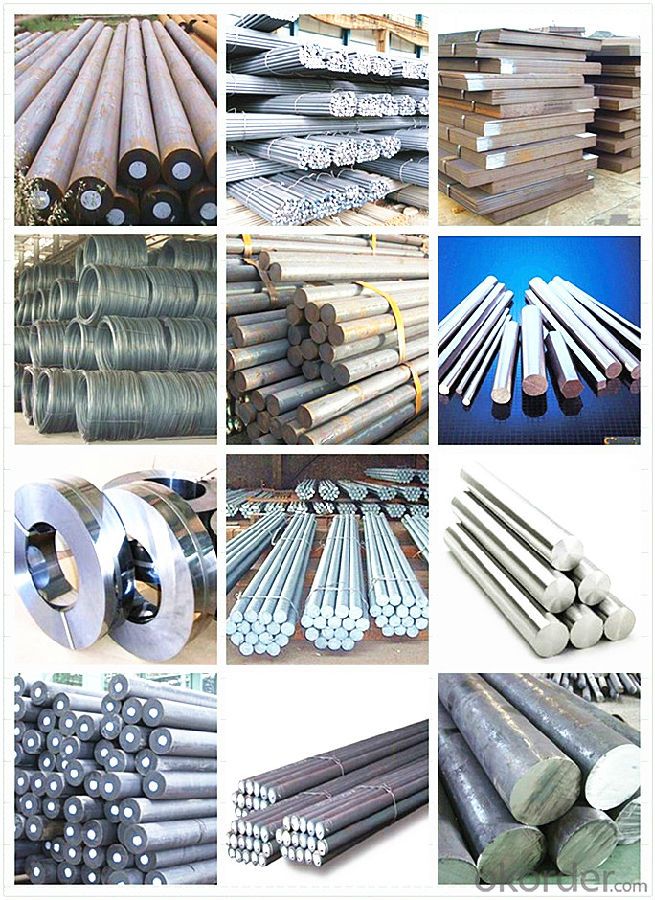
FAQ:
Are you a trading company or manufacturer? | Manufacturer |
What’s the MOQ? | 3 metric ton |
What’s your delivery time? | 15-35 days after downpayment received |
Do you Accept OEM service? | Yes |
what’s your delivery terms? | FOB/CFR/CIF |
What's the Payment Terms? | 30% as deposit,70% before shipment by T/T |
Western Union acceptable for small amount. | |
L/C acceptable for large amount. | |
Scrow ,Paybal,Alipay are also ok | |
Why choose us? | Chose happens because of quality, then price, We can give you both. Additionally, we can also offer professional products inquiry, products knowledge train (for agents), smooth goods delivery, excellent customer solution proposals. |
What's your available port of Shipment? | Main Port, China |
What’s your featured services? | Our service formula: good quality+ good price+ good service=customer's trust
|
Where are your Market? | Covering more than 160 countries in the world |
- Q: What are the properties of leaded steel?
- Leaded steel is a type of steel alloy that contains a small percentage of lead. This addition of lead provides several properties to the steel, including improved machinability, enhanced lubricity, and better chip formation during machining processes. Leaded steel also exhibits increased resistance to wear and galling, making it suitable for applications in which friction and sliding contact occur. Additionally, leaded steel has good corrosion resistance and can be easily welded and formed. However, it is important to note that leaded steel should be handled with caution due to the potential health hazards associated with lead exposure.
- Q: What are the applications of special steel in the marine sector?
- Special steel, also known as marine grade steel, offers a wide range of applications in the marine sector. One of the key uses of special steel in this industry is for shipbuilding. Special steel is highly resistant to corrosion, making it ideal for the construction of ships and other marine vessels that are constantly exposed to harsh weather conditions and saltwater. Another significant application of special steel in the marine sector is for offshore structures. Offshore platforms, such as oil rigs and wind turbines, require materials that can withstand the harsh marine environment, including corrosion, high pressure, and extreme temperatures. Special steel is known for its exceptional strength and durability, making it a preferred choice for these structures. Additionally, special steel is also used in the manufacturing of marine equipment and components. For example, propeller shafts, anchor chains, and underwater pipelines are often made from special steel due to its excellent mechanical properties and resistance to corrosion. Special steel is also used in the production of marine engines, ensuring reliable performance and longevity in marine applications. Furthermore, special steel is utilized in the construction of port infrastructure, such as piers, docks, and harbor structures. These structures need to withstand the constant exposure to sea water, heavy loads, and dynamic forces, making special steel an ideal material choice for their construction. In conclusion, the applications of special steel in the marine sector are numerous and vital. Its corrosion resistance, strength, and durability make it an essential material for shipbuilding, offshore structures, marine equipment, and port infrastructure. The utilization of special steel ensures the longevity and reliability of marine assets while operating in harsh marine environments.
- Q: What are the heat treatment processes used for special steel?
- Some of the heat treatment processes used for special steel include annealing, quenching, tempering, and hardening. Annealing involves heating the steel to a specific temperature and slowly cooling it to improve its ductility and reduce internal stress. Quenching is a rapid cooling process that hardens the steel by quickly cooling it from a high temperature, creating a tough and wear-resistant material. Tempering is a process that follows quenching, where the steel is reheated to a lower temperature to reduce brittleness and improve toughness. Hardening involves heating the steel to a high temperature and then rapidly cooling it to increase its hardness and strength. These heat treatment processes are used to enhance the properties and performance of special steel for various applications.
- Q: What are the different methods of preventing hydrogen embrittlement in special steel?
- There are several methods that can be employed to prevent hydrogen embrittlement in special steel. These include proper material selection, such as using low-hydrogen alloys or stainless steel grades that are less susceptible to embrittlement. Additionally, controlling the environment during manufacturing and storage processes is crucial, as hydrogen absorption can occur during these stages. Other preventive measures include heat treatment processes like stress relieving and tempering, which can help reduce internal stresses and enhance the steel's resistance to embrittlement. Overall, a combination of careful material selection, controlled environments, and appropriate heat treatment techniques can effectively prevent hydrogen embrittlement in special steel.
- Q: What are the main advantages of using special steel in the mining industry?
- The main advantages of using special steel in the mining industry are its high strength and durability, which make it capable of withstanding the harsh conditions and heavy loads associated with mining operations. Special steel also offers excellent resistance to corrosion, abrasion, and impact, ensuring a longer lifespan for mining equipment and reducing maintenance costs. Additionally, special steel's superior heat resistance and toughness make it suitable for high-temperature applications, such as smelting and refining processes.
- Q: What are the different wear-resistant grades of special steel?
- There are several different wear-resistant grades of special steel, including but not limited to, AR400, AR500, AR600, Hardox 400, Hardox 450, Hardox 500, Hardox 600, Bisplate 400, Bisplate 450, Bisplate 500, Bisplate 600, and Creusabro 4000. These grades are specifically designed to withstand abrasive wear and impact, making them ideal for applications in industries such as mining, construction, and manufacturing.
- Q: What are the quality control measures for special steel?
- Quality control measures for special steel involve several key steps and processes to ensure that the final product meets the required standards and specifications. These measures typically include: 1. Raw Material Inspection: Thoroughly checking the quality and composition of the raw materials used in the production of special steel, such as ensuring the correct chemical composition and metallurgical properties. 2. Process Control: Implementing strict controls and monitoring throughout the manufacturing process to ensure consistent quality, such as maintaining precise temperature control during heating and cooling processes, controlling the rolling or forging parameters, and ensuring proper heat treatment. 3. Testing and Sampling: Conducting various tests and sampling techniques to assess the quality of the special steel, including mechanical tests (such as tensile strength, hardness), non-destructive testing (like ultrasonic or magnetic particle inspection), and chemical analysis. 4. Dimensional and Surface Inspection: Verifying that the dimensions and surface finish of the special steel conform to the required specifications, such as measuring length, diameter, straightness, and checking for any defects or irregularities. 5. Final Inspection and Certification: Performing a final inspection to ensure that the special steel meets all quality standards and customer requirements. This may involve visual examination, additional testing, and issuing necessary certifications or quality assurance documents. By implementing these quality control measures, manufacturers can ensure the reliability, durability, and consistent performance of special steel, making it suitable for various critical applications in industries like automotive, aerospace, energy, and construction.
- Q: What are the different impact-resistant grades of special steel?
- There are various impact-resistant grades of special steel, including AR400, AR500, AR550, and AR600. These grades are specifically designed to withstand high levels of impact and abrasion, making them suitable for applications such as construction equipment, industrial machinery, and mining tools.
- Q: What are the different casting methods used for special steel?
- For special steel, various casting methods are commonly utilized, depending on the specific requirements and needs of the application. These methods encompass investment casting, sand casting, continuous casting, and centrifugal casting. 1. Investment casting: To create the desired part, a wax pattern is made and coated with a ceramic shell. The wax is melted away, leaving a hollow shell that is then filled with molten steel. After solidification, the ceramic shell is broken, yielding the final part. Investment casting enables the production of accurate and intricate shapes, making it ideal for high-quality and precise special steel components. 2. Sand casting: Among the oldest and most prevalent casting techniques, sand casting involves forming a mold using a mixture of sand and a binder like clay. The mold is shaped around a pattern of the desired part and molten steel is poured into it. Upon cooling and solidification, the casting is complete. Sand casting is versatile and cost-effective, suitable for producing large and heavy special steel components. 3. Continuous casting: This method is commonly employed for manufacturing long steel products such as bars, rods, and billets. Molten steel is continuously poured into a water-cooled mold, which solidifies the outer surface. The solidified steel is then continuously withdrawn as more molten steel is poured in. Continuous casting ensures high-quality steel with a consistent cross-section, devoid of defects. 4. Centrifugal casting: In this technique, molten steel is poured into a rotating mold. The centrifugal force drives the molten steel towards the outer walls, resulting in a dense and compact casting with enhanced mechanical properties. Centrifugal casting is particularly suitable for producing cylindrical or tubular special steel components such as pipes and rings. In summary, the selection of a casting method for special steel hinges on factors like part complexity, required quality and accuracy, component size and shape, and production volume. Each method has its advantages and limitations, necessitating careful consideration to determine the most appropriate casting technique for a specific application.
- Q: How does special steel perform in cryogenic toughness?
- Special steel performs well in cryogenic toughness due to its unique composition and manufacturing processes. It is specifically designed to maintain its strength, hardness, and toughness even at extremely low temperatures. This makes it highly resistant to brittle fracture and ensures reliable performance in cryogenic applications, such as liquefied natural gas (LNG) storage tanks, aerospace components, and superconducting magnets.
Send your message to us
SA283 GR.C Mild Steel Sheet/Mild Steel Plate
- Loading Port:
- Tianjin
- Payment Terms:
- TT OR LC
- Min Order Qty:
- 3 m.t.
- Supply Capability:
- 100000 m.t./month
OKorder Service Pledge
OKorder Financial Service
Similar products
Hot products
Hot Searches
Related keywords
